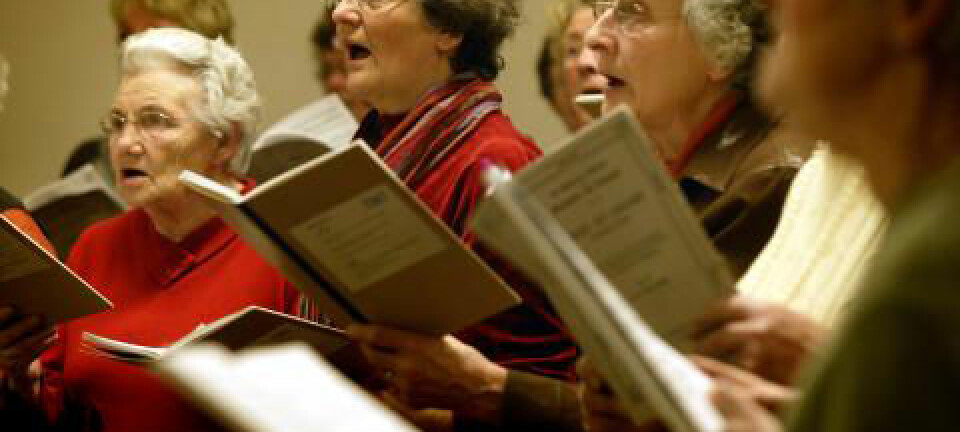
Death of a partner increases risk of heart fibrillation
A new study shows that there is an increased risk of atrial fibrillations shortly after losing a partner. Doctors need to be aware of this increased risk, say scientists.
A large study published in the scientific journal Open Heart shows a correlation between the death of a partner and an increased risk of developing atrial fibrillations--an irregular heartbeat that can lead to blood clots, strokes, or heart failure.
This agrees with previous studies that found a link between a stressful life and the increased risk of developing heart disease. An example is the so-called ‘broken heart syndrome’ where psychological strain reduces the heart’s ability to pump blood around the body.
But the new study, is the first to show a similar link to the occurrence of atrial fibrillations.
"Mental well-being affects the body's physiology and health. I believe that we should focus on the interaction between the mind and the body, especially for people who’ve been exposed to something as dramatic as losing their partner," says lead-author Simon Graff from the Department of Public Health, Aarhus University, Denmark.
Increased risk of blood clots and heart failure

Atrial fibrillations are a dangerous condition where the normal heart rhythm is replaced by an irregular, faster rhythm, which increases the risk of blood clots and heart failure. Treatment is typically a blood-thinning medicine to prevent clotting. But this is a lifelong treatment and can itself increase the risk of strokes.
The condition normally afflicts the elderly but the new study finds that people under the age of 60 are especially vulnerable, in particular those that have lost their partner.
This may be because we generally expect to live far beyond our sixties, says Graff.
“The shock is inherently greater for younger surviving partners, where this acute stress may be associated with atrial fibrillation," he says.
“In contrast, we didn’t find an increased risk of developing heart problems in people whose partner had been seriously ill for a long time,” says Graff.
Atrial fibrillation occurs shortly after partner’s death
Graff and his colleagues analysed the social security registers and the national patient registers in Denmark between 1995 and 2014.
The scientists identified almost 89,000 people diagnosed with atrial fibrillations and compared them with a control group of nearly 887,000 healthy people with similar demographics.
They found the risk of developing a fibrillation was 41 per cent higher in people who had lost a partner, compared with those who had not faced such an ordeal.
The risk is highest 8 to 14 days after a partner’s death, after which it gradually decreases. But it takes a full year before the risk drops to that of people who did not lose their partner.
So why does the risk peak at eight days after their loss?
"It could be related to the time it takes to get a diagnosis,” says Graff. “You might not go to the doctor the day after losing your partner, and so the incidence is highest 8 to 14 days after. The [risk] gradually declines thereafter, which confirms that atrial fibrillation may be associated with the death," he says.
Important to monitor survivor’s health
Margit Kriegbaum, a Postdoc from the Department of Health Services at the University of Copenhagen, Denmark, agrees with Graff. There should be a greater focus on the surviving partner’s health, she says, which can also be affected by a break-up and not necessarily by something as dramatic as death.
"The health system must be aware of the risk of heart problems in people suffering from severe mental stress, such as the death of a partner. It’s important to make sure that they have a social network around them in the days after [the event]," says Kriegbaum.
She recommends that survivors visit their doctor soon after the death of a loved one, even though the doctor may not be able to prevent cases of atrial fibrillation.
--------------------
Read the Danish version of this story on Videnskab.dk
Translated by: Catherine Jex
Scientific links
- "Long-term risk of atrial fibrillation after the death of a partner", Open Heart (2016), doi:10.1136/openhrt-2015-000367
- "Does the association between broken partnership and first time myocardial infarction vary with time after break-up?", International Journal of Epidemiology (2013), doi: 10.1093/ije/dyt190.
- "Negative aspects of close social relations and 10-year incident ischaemic heart disease hospitalization among middle-aged Danes", European Journal of Preventive Cardiology (2014), doi: 10.1177/2047487313486041










